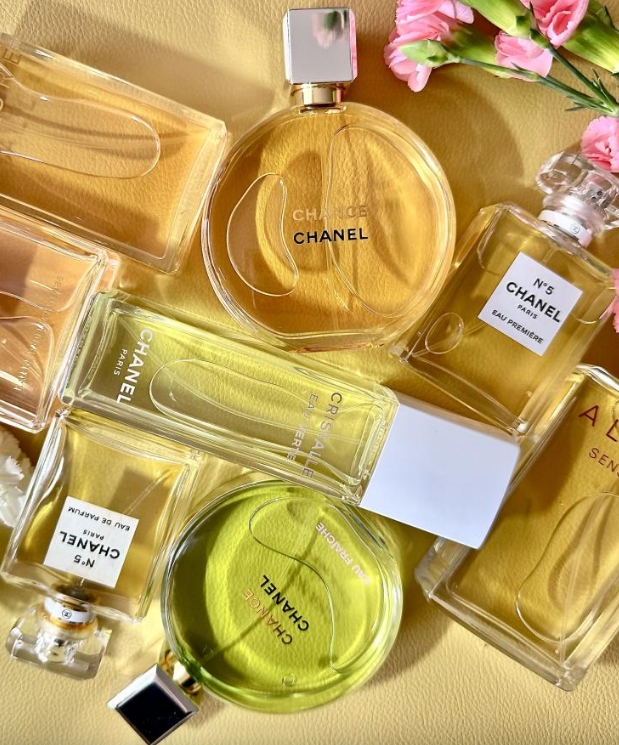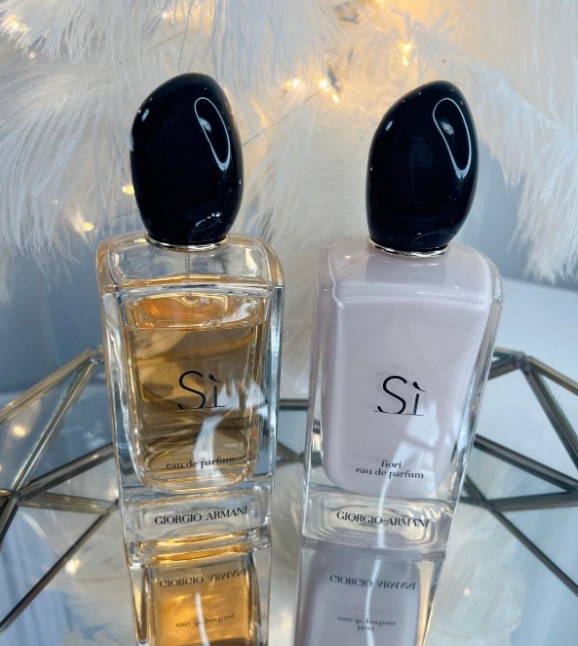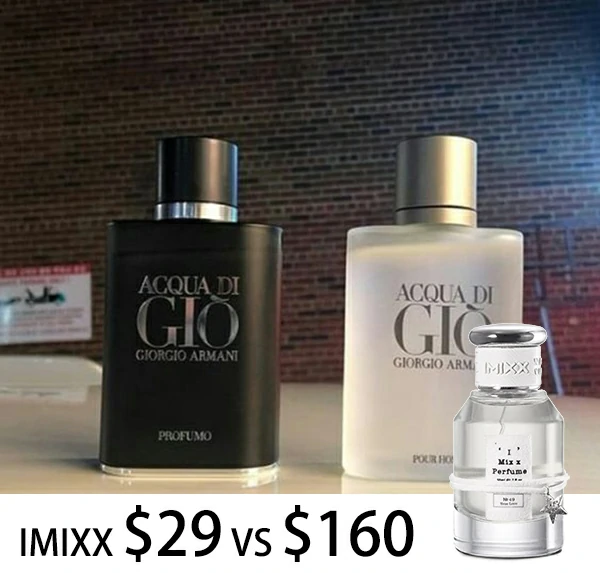What’s the Real Difference Between Perfume and Parfum? When it comes to the world of fragrances, one of the most common questions fragrance enthusiasts often ask is: What’s the difference between perfume and parfum? This simple question can open up a broader discussion about fragrance types, concentrations, longevity, and how these factors contribute to the overall scent experience. Whether you’re a perfume collector or simply someone who enjoys smelling good, understanding the subtle nuances between these two forms of fragrance is essential.
In this comprehensive guide, we’ll dive deep into the difference between perfume and parfum, explore how these fragrances are made, and discuss the factors that influence their scent strength. Additionally, we’ll cover everything from the meaning behind perfume concentrations to how IMIXX Perfumes captures the essence of luxury fragrances at an affordable price.

What Is Perfume and What Is Parfum? Understanding the Basics
Before we dive into the intricate differences between perfume and parfum, it’s essential to understand the basic terminology used in the fragrance industry. At its core, both “perfume” and “parfum” are terms used to describe fragrances, but the concentration of perfume oils in each form varies.
Perfume: Eau de Parfum vs. Eau de Toilette
When you come across the term “perfume,” it often refers to Eau de Parfum (EDP) or Eau de Toilette (EDT), which are popular types of fragrances used daily. The key difference between them lies in the concentration of fragrance oils:
Eau de Parfum (EDP): Typically contains 15% to 20% fragrance oils, making it stronger and longer-lasting than Eau de Toilette.
Eau de Toilette (EDT): With a concentration of around 5% to 15%, Eau de Toilette is lighter and more refreshing, ideal for everyday wear.
Parfum: The Most Concentrated Form of Fragrance
On the other hand, parfum (also referred to as extrait de parfum or pure perfume) is the most concentrated form of fragrance, containing anywhere from 20% to 40% fragrance oils. As a result, parfum is richer, more intense, and lasts significantly longer on the skin—sometimes up to 24 hours.
The high concentration of oils gives parfum its strong scent, which is why it’s often more expensive than Eau de Parfum or Eau de Toilette.
How Do Perfume Concentrations Affect Scent and Longevity?
One of the key differences between perfume and parfum is the lasting power. Since parfum has a higher concentration of fragrance oils, it will remain on your skin for a much longer period. In comparison, Eau de Parfum (EDP) lasts for about 4-6 hours, while Eau de Toilette (EDT) typically fades after 3-4 hours.
Comparing the Performance of Different Fragrance Concentrations:
| Fragrance Type | Oil Concentration | Longevity on Skin | Ideal Use |
|---|---|---|---|
| Parfum | 20-40% | 12-24 hours | Special occasions, night wear |
| Eau de Parfum (EDP) | 15-20% | 4-6 hours | Daily wear |
| Eau de Toilette (EDT) | 5-15% | 3-4 hours | Casual, daytime wear |
As you can see, the key difference between perfume and parfum is their lasting power, which is why parfum is often considered the more luxurious option.
Why Are Some Perfumes Labeled as Parfum While Others Are Eau de Parfum or Eau de Toilette?
Many people wonder why certain fragrances are labeled as parfum while others carry the eau de parfum or eau de toilette title. The answer lies in the difference in perfume concentrations.
Perfumes with higher concentrations of fragrance oils are typically labeled as parfum. These are more expensive due to the higher amount of precious ingredients used in their production. On the other hand, Eau de Parfum and Eau de Toilette are more diluted, offering a lighter, more accessible version of the scent.
What Are the Benefits of Choosing Parfum Over Eau de Toilette?
When deciding whether to opt for parfum or Eau de Toilette, there are several factors to consider. Here are some benefits of choosing parfum over Eau de Toilette:
Long-Lasting Power:
Parfum has the advantage of staying with you longer. If you’re looking for a fragrance that lasts all day without needing to reapply, parfum is your best bet.
Stronger Scent Profile:
With its higher concentration, parfum delivers a more intense, richer scent that can evolve beautifully throughout the day.
Cost-Effectiveness in the Long Run:
Though parfum may seem expensive upfront, because it’s so concentrated, you need to use less of it. A little goes a long way!
FAQ: Commonly Asked Questions About Perfume and Parfum
1. What is the difference between perfume and parfum?
Perfume and parfum are often used interchangeably, but there is a distinction between the two. Parfum is the most concentrated form of fragrance, containing around 20-40% fragrance oils. It is more intense and longer-lasting, sometimes staying on your skin for up to 24 hours. On the other hand, Eau de Parfum (EDP) typically contains 15-20% fragrance oils and lasts around 4-6 hours, while Eau de Toilette (EDT) contains 5-15% fragrance oils and lasts 3-4 hours. Essentially, parfum is the most potent and enduring version of a fragrance.
2. How does the concentration of fragrance oils affect the scent and longevity?
The higher the concentration of fragrance oils, the stronger and longer-lasting the scent. Parfum, with its higher oil concentration, provides a more intense fragrance that can last up to 24 hours on the skin. Eau de Parfum (EDP), while still rich in fragrance, tends to last about 4-6 hours. Eau de Toilette (EDT) is lighter, typically lasting 3-4 hours. The concentration of oils also means that parfum’s scent can be more layered, evolving throughout the day.
3. Which fragrance concentration is best for daily wear?
For daily wear, Eau de Parfum (EDP) is the ideal choice for most people. It strikes a balance between being strong enough to last for several hours, without being too overpowering. Eau de Toilette (EDT) is also suitable for daytime wear if you prefer a lighter, fresher scent. Parfum, due to its intensity and higher cost, is often reserved for special occasions or evening wear.
4. Why are parfum versions more expensive than Eau de Parfum or Eau de Toilette?
Parfum is more expensive because it has a higher concentration of fragrance oils, which are more costly to source and use. Additionally, the production process for parfum involves more refined techniques, and it typically contains more complex and rare ingredients. These factors contribute to the higher price tag. The longevity and richness of the scent also add to its luxury appeal.

5. What does extrait de parfum mean?
Extrait de Parfum is another term for parfum, referring to the purest and most concentrated form of fragrance. It contains between 20-40% fragrance oils, which is higher than Eau de Parfum or Eau de Toilette. This high concentration results in a more robust and long-lasting scent.
6. Can the same fragrance be found in both Eau de Parfum and Parfum versions?
Yes, many luxury fragrance brands offer the same scent in both Eau de Parfum (EDP) and Parfum versions. The primary difference is the concentration of fragrance oils. The Parfum version will be stronger, richer, and longer-lasting, while the EDP will be slightly lighter but still highly fragrant. Both versions aim to deliver a similar scent profile but with varying intensities.
7. What are the benefits of choosing parfum over Eau de Parfum?
Choosing Parfum over Eau de Parfum (EDP) offers several benefits:
Longevity: Parfum lasts significantly longer, often up to 24 hours.
Intensity: Parfum has a more potent, richer scent due to the higher concentration of oils.
Fewer Applications: You will need to apply less, making it cost-effective in the long run.
Parfum is perfect for those who want a fragrance that can carry them through an entire day or evening without needing reapplication.
8. Is it true that parfum is more likely to be expensive than Eau de Toilette?
Yes, Parfum tends to be more expensive than Eau de Toilette (EDT) because it contains a higher concentration of fragrance oils, which are more costly to source. The production of parfum also involves using higher-quality ingredients and more intricate blending processes. Additionally, parfum is marketed as a luxury product, which also adds to the cost.
9. Can Eau de Toilette or Eau de Parfum be worn in place of Parfum?
Yes, you can wear Eau de Parfum (EDP) or Eau de Toilette (EDT) in place of Parfum, depending on your preference. However, keep in mind that EDP may not last as long, and EDT will be lighter and less intense. These alternatives are great for daily wear, but for special occasions or when you want a more concentrated scent, parfum is ideal.
10. Why do some fragrances smell differently between parfum and Eau de Parfum?
The difference in the concentration of fragrance oils causes the scent of a fragrance to evolve differently between Parfum and Eau de Parfum (EDP). Parfum tends to be more intense and complex because of its higher oil concentration, while EDP is lighter and more fluid. You may notice that Parfum can have a deeper, richer scent profile, while EDP might present more fresh or airy top notes.
11. How should I choose between Eau de Parfum and Eau de Toilette?
When deciding between Eau de Parfum (EDP) and Eau de Toilette (EDT), consider the following factors:
Longevity: If you want a fragrance that lasts longer (4-6 hours or more), choose EDP.
Scent Strength: For a stronger, more intense scent, go for EDP. If you prefer a lighter, more subtle fragrance, EDT might be better.
Occasion: EDP is great for evenings or special events, while EDT is often perfect for daily, casual wear.
12. How does IMIXX Perfumes replicate luxury fragrances so accurately?
IMIXX Perfumes has perfected the art of creating fragrance dupes that are nearly indistinguishable from luxury brands. This is made possible through the company’s use of high-quality raw materials sourced from top fragrance-producing regions such as Grasse, France. Their fragrances undergo rigorous testing, and IMIXX invests heavily in research and development to ensure that each fragrance replicates the scent profile of luxury perfumes. The result is a high-quality, affordable alternative to expensive luxury fragrances.
Why Choose IMIXX Perfumes for Your Fragrance Dupes?
At IMIXX Perfumes, we pride ourselves on crafting high-quality fragrance dupes that offer an authentic luxury scent experience at a fraction of the price. IMIXX is able to replicate some of the most iconic luxury perfumes with astonishing accuracy, using premium ingredients sourced from renowned fragrance-producing regions. Our perfumes are designed to offer the same longevity, depth, and complexity as the originals, all while being more affordable.
Whether you’re searching for a dupe of Tom Ford, Le Labo, or Armani, IMIXX Perfumes has you covered. Our rigorous production process, sustainable practices, and attention to detail ensure that each fragrance is as close to the original as possible.
Explore our range of affordable luxury fragrance dupes at IMIXX Perfumes today and discover your new signature scent.

In Conclusion:
Understanding the difference between perfume and parfum is essential for any fragrance enthusiast. While both types offer incredible scents, their longevity, intensity, and price differ significantly. Whether you’re drawn to the rich, long-lasting nature of parfum or the lighter, more everyday-friendly Eau de Parfum, both options have their place in your fragrance wardrobe.
For those who want luxury without the hefty price tag, IMIXX Perfumes provides high-quality fragrance dupes that capture the essence of your favorite luxury scents at a fraction of the cost. Explore our collection today!

